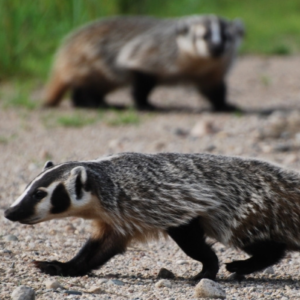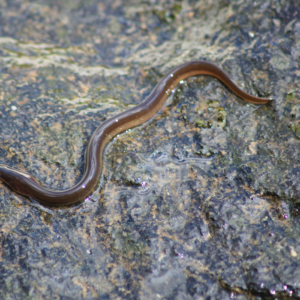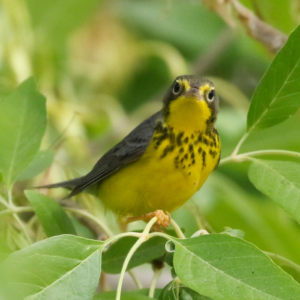Horned Grebe
These birds are excellent swimmers and are able to stay underwater for up to three minutes at a time. Save endangered species today by joining one of our campaigns!
Help End the ExtinctionVital Signs
- Common name: Horned Grebe
- Latin name: Podiceps auritus
- Conservation Status: Special Concern; Endangered (Magdalen Island population)
- Range: Yukon, Northwest Territories, Nunavut, British Columbia, Alberta, Saskatchewan, Manitoba, Ontario
- Lifespan: Average of 5 years
- Size: 31-38 cm in length, 3-5.7 kg in weight, 44-46 cm wingspan
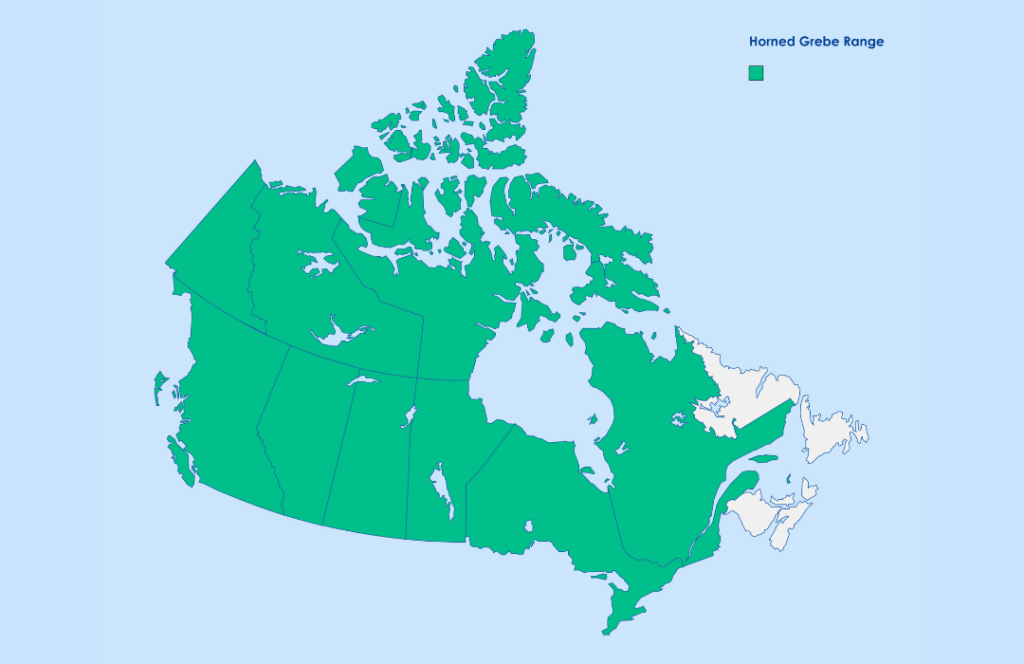
The Horned Grebe has a black head and rust-red throat and sides. Most noticeable are the “horns,” which are yellow streaks that stretch from the eye to the back of the head.
Horned Grebe Facts
- Babies ride on their parents’ backs—even when the parents dive underwater!
- Eat some of their own feathers, and even feeds them to their chicks
- In some bigger bodies of water, they may dive up to 6 metres to hunt fish
- When mating, they bond with a display called a “ceremony”
- Parents take turns sitting on the eggs in the nest
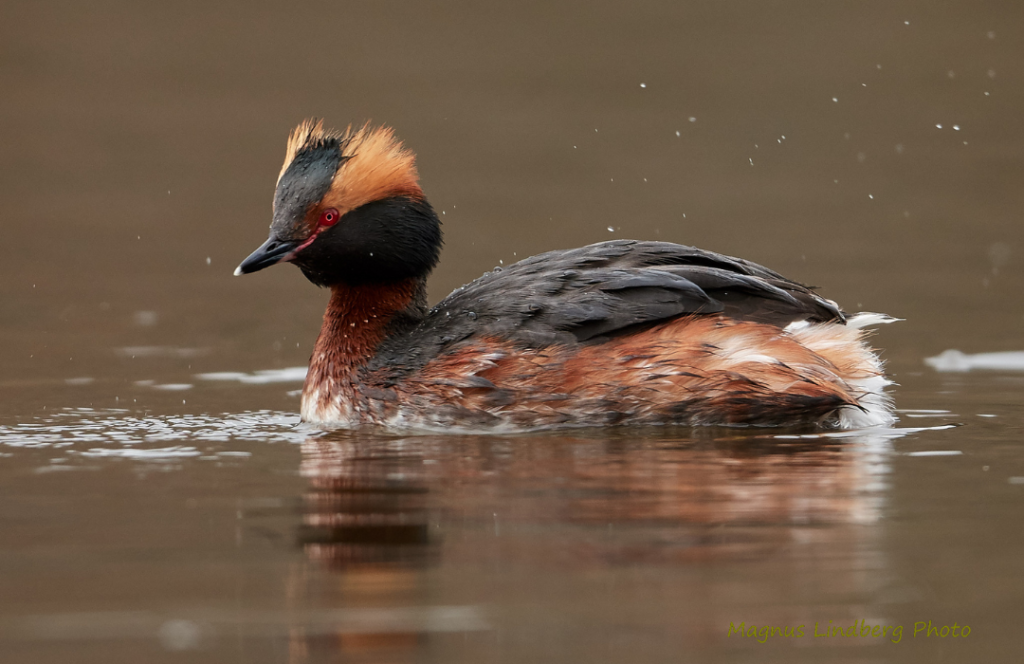
Threats
Horned Grebes are losing their wetland habitat to agricultural development. Nesting sites are also being degraded by the accumulation of fertilizer. The birds also get caught in fishing nets during migrations in both spring and fall.
The Magdalen Islands Horned Grebe population is even more threatened by these things due to how few birds there are.
What’s Being Done
The Quebec Act Respecting Vulnerable and Threatened Species protects the Horned Grebe in Quebec. This bird is also protected under The Migratory Birds Convention Act (1994).
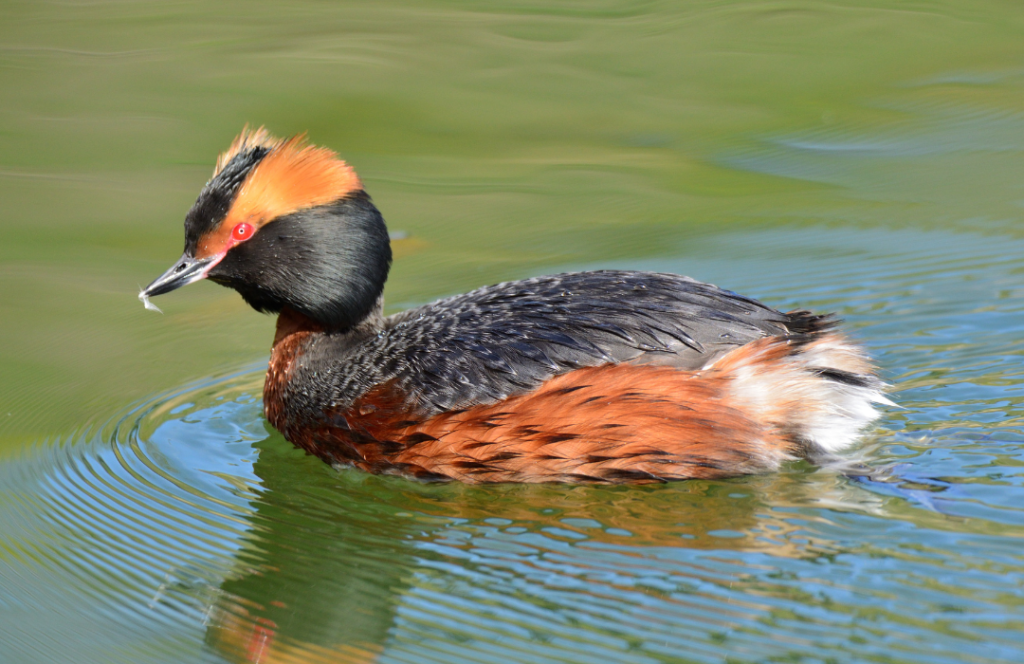
Canada has committed to the goal of protecting 30% of lands, ocean, and freshwater in Canada by 2030. This goal will help protect ecosystems, restore habitats, and fight climate change. All these things are a step in protecting Canada’s at-risk animals—so let’s hold the federal government to their promise.
How to Help
- Take Part: Advocate for protection of Important Bird Areas in your community and across the country. You can also take steps to make your city bird friendly.
- Learn: Stay informed about endangered species by signing up for Nature Canada’s monthly e-newsletter.
- Find out more: Help us end the extinction by taking action for nature today—visit conservation websites like Nature Canada or join one of our campaigns!
Resources
- Animal Diversity Web – Podiceps auritus/Horned Grebe
- The Cornell Labs – All About Birds: Horned Grebe
- SARA – Species Profile (Magdalen Islands)
- SARA – Species Profile (Western Population)

